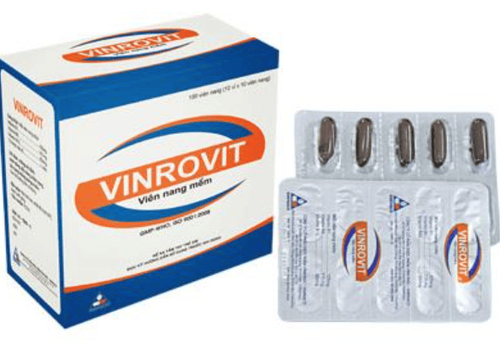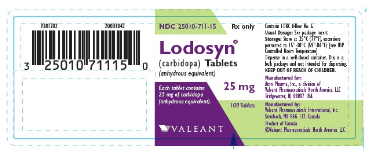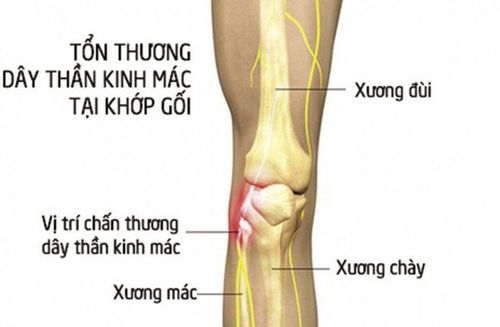This is an automatically translated article.
Polyneuritis is the most common form of peripheral neuropathy, involving damage to the peripheral nerves - outside of the brain and spinal cord. In this form of neuropathy, many nerves are affected.1. What is polyneuropathy?
Polyneuritis is when many peripheral nerves are damaged, also known as peripheral neuropathy.Peripheral nerves are the nerves outside of the brain and spinal cord. They relay information between the central nervous system (CNS) and all other parts of the body. The brain and spinal cord are part of the central nervous system.
Polyneuropathy affects several nerves in different parts of the body at the same time. In the case of mononeuropathy, only one nerve is affected.
Polyneuropathy can affect the nerves responsible for sensation (sensory neuropathy), motor (motor neuropathy), or both (sensory neuropathy).
It can also affect the autonomic nerves responsible for controlling functions such as digestion, bladder, blood pressure and heart rate.
2. Are there many types of polyneuropathy?
There are more than 100 types of peripheral neuropathy and most of these are polyneuropathy. Each is classified by the type of nerve damage, the underlying cause, and the symptoms it produces.For example, diabetic neuropathy occurs in people with diabetes, while idiopathic neuropathy seems to have no known cause. There are three main forms of polyneuropathy:
Chronic symmetric peripheral neuropathy: Most polyneuropathy is chronic and develops over many months. Polyneuropathy: There is damage to at least two distinct nerve regions. Acute Symmetrical Peripheral Neuropathy: This is rare. The most common cause is Guillain-Barre syndrome, a potentially fatal condition. Some neurological diseases can take years to develop, but others become serious within hours to days of onset.

Có hơn 100 loại viêm đa dây thần kinh mà khoa học đã tìm ra
3. Causes and risk factors
Diabetes: This is a dangerous risk factor especially for blood sugar if not controlled. Alcohol abuse: Alcohol can damage nerve tissue, and alcohol abuse is often associated with nutritional deficiencies that contribute to neuropathy. Autoimmune condition: The immune system attacks the body, causing damage to nerves and other areas. Conditions include Sjogren's syndrome, Celiac disease, Guillain-Barre syndrome, rheumatoid arthritis, and lupus. Have a bacterial or viral infection such as liver disease, HIV, shingles. Having a bone marrow disease such as bone cancer or lymphoma. Toxic exposure: Toxic neuropathy can be caused by exposure to industrial chemicals such as arsenic, lead, mercury, and thallium. Drug or chemical abuse is also a risk factor. Hypothyroidism: An underactive thyroid gland can lead to polyneuropathy, although this is uncommon. Kidney disease: Anemic neuropathy is a form of polyneuropathy that affects 20% to 50% of people with kidney disease, according to the Center for Peripheral Neuropathy. Liver disease: Research indicates that peripheral neuropathy is very common in people with cirrhosis. Medicines: Chemotherapy, along with some drugs used to treat HIV/AIDS, can cause neurological disease. Poor nutrition: A lack of vitamins B1, B6, B12 and E can lead to polyneuropathy, as these are very important for nerve health. Trauma or physical trauma: Repetitive movements such as typing, accidents, or other trauma can damage peripheral nerves. Some cases of polyneuritis have no known cause. These are called idiopathic neuropathy.
Những người bệnh tiểu đường có nguy cơ cao bị viêm đa dây thần kinh
4. Symptoms of polyneuropathy
The symptoms of polyneuropathy depend on whether autonomic, sensory, or motor nerves, or a combination of them, are involved. Autonomic nerve damage can affect bodily functions or blood pressure, and even produce gastrointestinal symptoms.Damage to the sensory nerves can affect sensation and sense of balance, while damage to the motor nerves can affect movement and reflexes. When both sensory and motor nerves are involved, the condition is called sensory polyneuropathy, in which damage occurs throughout the body to nerve cells, fibers (fibers, shaft) and mantle (myelin sheath).
Depending on the cause and the patient, symptoms of polyneuritis may include: Temporary or permanent numbness; tingling; stinging or burning sensation; increased touch sensitivity; pain; muscle weakness or emaciation; paralyze; or dysfunction in organs or glands; urinary and sexual dysfunction
5. Treatment of polyneuropathy
The goal of polyneuropathy treatment is to control symptoms, sometimes involving treatment of the underlying cause, if known (such as diabetes). When the underlying cause is corrected, the neuropathy usually improves on its own.Which treatment is given also depends on the severity of the symptoms. Simple pain management can be an important part of neuropathy treatment. The most aggressive therapy is usually for symptoms that greatly interfere with daily functioning.
Therapies to manage polyneuritis pain may include:
Pain relievers : Over-the-counter pain relievers may be appropriate for mild symptoms. For more severe pain, prescription pain relievers can be used. Some pain relievers can lead to dependence and other side effects, so they are often prescribed when other treatments have failed. Corticosteroids: Corticosteroids are anti-inflammatory drugs that can relieve severe pain associated with nerve irritation and inflammation. They can be taken by mouth or injected directly into painful areas of the body. Corticosteroids can significantly reduce and possibly eliminate pain in the long run. Antiepileptic drugs: Drugs originally developed to treat epilepsy are sometimes used to relieve nerve pain. Side effects of these drugs can be drowsiness and dizziness. Transcutaneous electrical nerve stimulation (TENS): TENS is a non-drug therapy that works by applying very small electrical impulses on specific nerve pathways. Electrical impulses are delivered through electrodes placed on the skin. Although it doesn't work for everyone or all types of pain, TENS may be prescribed in combination with other treatments, primarily to help relieve acute forms of neuropathic pain. Antidepressants: Several types of antidepressants have been found to help relieve pain caused by neuropathy by interfering with chemical processes in the brain involved in the pain response. When more aggressive treatment is needed for progressive neurological diseases that cause severe bodily dysfunction, some options include:
Immunosuppressive drugs, including those that contain limiting antibodies inhibits autoimmune processes leading to nerve damage. Removes malfunctioning antibodies from the blood by cytoplasmic migration, a process that removes antibodies from the plasma portion of blood before being returned to the body.

Mục tiêu chính trong điều trị viêm đa dây thần kinh là kiểm soát triệu chứng
6. Alternative therapies and health care
Certain lifestyle choices and wellness techniques can help people with polyneuropathy manage their disorder.Stay active: Exercise has been shown to help with neuropathic pain. Practice good foot care: Avoid tight socks and shoes that can worsen pain. Regularly check your feet for developing problems, such as blisters or excessive calluses. Foot massage can also be helpful by stimulating circulation. Note pressure points: Avoid prolonged pressure on the nerve by not crossing your legs or leaning on your arms or elbows for long periods of time. Don't smoke: Smoking reduces circulation and can worsen the effects of neuropathy. Although alternative therapies have not been studied as extensively as drug treatments for neurological disease, most therapies are relatively safe to use. These include:
Acupuncture: Acupuncture should be performed by a certified physician. It may take several sessions before symptoms improve. Alpha lipoic acid: Alpha lipoic acid is a naturally occurring fatty acid found in every cell in the body. It converts blood sugar into energy to fuel bodily functions. Alpha lipoic acid is also an antioxidant, which may work to protect cells from damage by free radicals. Because it can affect blood sugar levels, patients should consult their doctor before taking this over-the-counter supplement. Capsaicin: A naturally occurring substance found in hot peppers, Capsaicin can moderately improve symptoms of neuropathy. Available in a cream, patients must gradually develop a tolerance to the heat generated by exposure before enjoying their pain relief. Symptoms of polyneuritis manifest themselves in a variety of ways, from numbness and weakness in the limbs to cardiovascular and digestive dysfunction. Therefore, it is necessary to detect and treat early to prevent further damage to the peripheral nerves.
Please dial HOTLINE for more information or register for an appointment HERE. Download MyVinmec app to make appointments faster and to manage your bookings easily.













